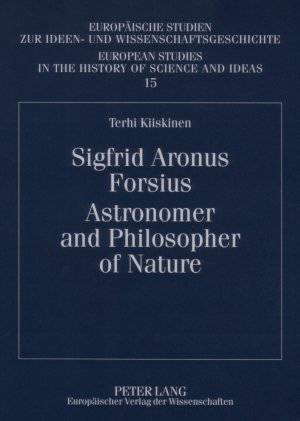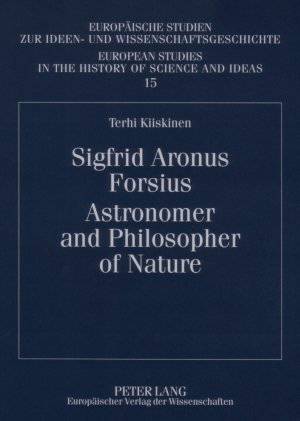
- Afhalen na 1 uur in een winkel met voorraad
- Gratis thuislevering in België vanaf € 30
- Ruim aanbod met 7 miljoen producten
- Afhalen na 1 uur in een winkel met voorraad
- Gratis thuislevering in België vanaf € 30
- Ruim aanbod met 7 miljoen producten
Zoeken
Omschrijving
Sigfrid Aronus Forsius (d. 1624) was the most renowned scholar of the Nordic Renaissance in the Swedish kingdom. The present work is the first comprehensive analysis of his natural-philosophical views and of the sources that he utilised. He was a representative of the exciting spiritual atmosphere of early Reformation. He combined Aristotelian, Paracelsistic, Stoic, Hermetic and Platonic ideas. His basic views included the concept of universal harmony, one aspect of which was the correspondence between the microcosm and the macrocosm, God as the Creating Nature (naturans natura), the study of nature as a starting point for natural theology and as a way to know God, and the great value of astronomy and astrology. Forsius was ahead of his time in the Swedish kingdom when he considered that heaven could physically be compared with the earthly elements. His view of the heavens as elementary and natural gave offence at the University of Uppsala. Some theologians thought that the heavens should have been preserved as a totally spiritual realm. Part of the study focussed on detecting what specific works Forsius used as his sources in his main work Physica, and the detailed results are summed up in an appendix. The literature used by him reflected similarly progressive cultural and scientific interests as did the libraries of some noble families, in contrast with the rather conservative atmosphere in the academical circles.
Specificaties
Betrokkenen
- Auteur(s):
- Uitgeverij:
Inhoud
- Aantal bladzijden:
- 538
- Taal:
- Engels
- Reeks:
- Reeksnummer:
- nr. 15
Eigenschappen
- Productcode (EAN):
- 9783631561461
- Verschijningsdatum:
- 27/02/2007
- Uitvoering:
- Paperback
- Formaat:
- Trade paperback (VS)
- Afmetingen:
- 148 mm x 210 mm
- Gewicht:
- 709 g

Alleen bij Standaard Boekhandel
+ 224 punten op je klantenkaart van Standaard Boekhandel
Beoordelingen
We publiceren alleen reviews die voldoen aan de voorwaarden voor reviews. Bekijk onze voorwaarden voor reviews.











